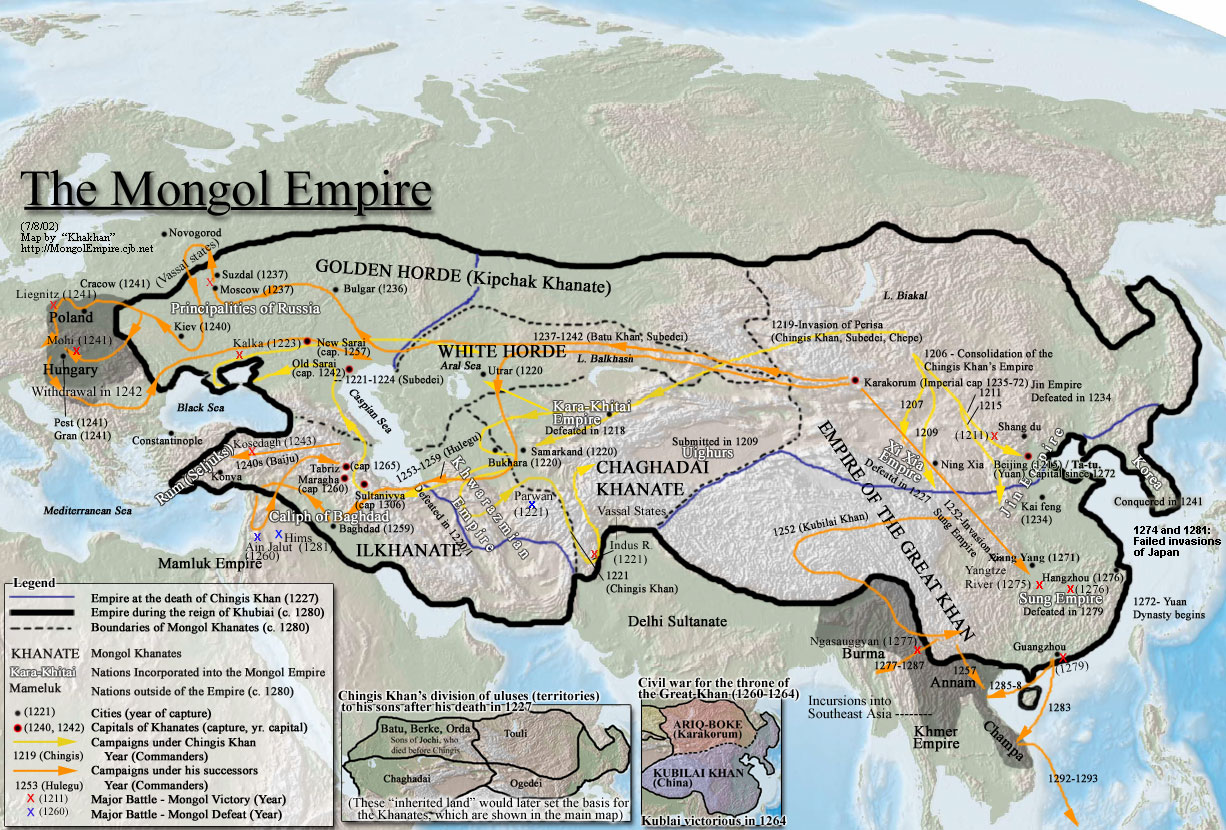The Golden Horde, based primarily in Russia, but additionally encompassed the lands of Ukraine and Eastern Europe. The territories that comprised the Golden Horde were originally conquered and then loosely organized by Chinggis Khan. After Chinggis Khan’s death in c. 1227, the territories that would make up the Golden Horde were supposed to be inherited by Jochi, who was Chinggis Khan’s eldest son. However, Jochi died around the same time as his father. The territory was then inherited by Jochi’s son Batu. Batu then, through numerous military campaigns, expanded his inheritance, which ultimately created the epoch of the Golden Horde.
Inheritance for the Mongols, unlike in other cultures, was flexible. The father’s ordu, or campincluding his possessions, not excluding his father’s wives and slaves, were inherited by the youngest son of the chief wife. The inheritance of the camp and possessions effectively included the family’s homelands and/or the homestead. In some cases, the chief wife was not always the youngest son’s biological mother. The oldest son, in this instance Jochi, inherited the ulus, or subject people; lands, farthest from the family’s homelands. However, due to Jochi’s unanticipated death, his youngest son Batu inherited his father’s lands and position. Historian George Lane remarked, “Traditions did exist, but flexibility and adaptability ruled.”
After Batu’s numerous and successful military campaigns the Golden Horde stretched from the Carpathian Mountains in Eastern Europe to Siberia. Batu designated Sarai on the River Volga as the ” capital of the Golden Horde. The territories that Batu ruled were labeled as the “Golden Horde” by the Russians. The Russians were mostly allowed to govern themselves, except for the people were kept under supervision by the Mongols. The Mongols at first also supervised tax collecting however, the job of tax collecting was eventually handed over to the prince of Moscow. The Mongols named the prince of Moscow, the Grand Prince of Russia.

The Golden Horde was the last Khanate to remain in power and was finally defeated in the 14th century. In c. 1438 the Golden Horde was divided into Khanates of Kazan. Following in 1441 the Golden Horde was further divided into Khanates of Astrakhan and Crimea. Between 1552 and 1554 Ivan the Terrible defeated Kazan and Astrakhan. Crimea lasted until 1783 when it was then annexed by Catherine the Great.